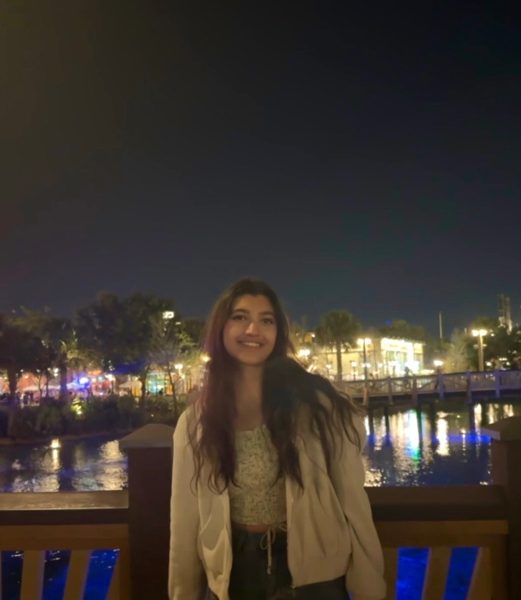At AHS, students have continually exercised their rights to speech and protest, organizing walkouts as a means to express their concerns and advocate for their stances on ongoing Israel-Hamas conflict.
This local activism is part of a broader global movement, transcending the boundaries of Annandale, where protests demanding a ceasefire in Gaza and showing support for Palestine have become widespread.
Recent events have seen this wave of activism extend onto numerous college campuses nationwide, as students rally for reform and push for a reassessment of the core priorities within our higher education institutions.
A rising number of college students have gathered to set up protest encampments, demanding that their universities cut ties with Israel and companies funding or supporting the conflict in Gaza.
According to USA Today, the University of Southern California canceled their valedictorian, Asna Tabussum’s commencement speech at graduation in May, the first time this has ever happened in the history of the institution.
This unprecedented move by USC not only sparked heated debates but also ignited a broader discourse surrounding freedom of expression in educational settings.
USC’s decision not only undermines the principles of free speech but also represents a profound injustice to Tabassum, who undoubtedly dedicated considerable effort throughout her years at the university to earn this prestigious opportunity.
USA Today reports that college officials at USC made the decision to cancel Asna Tabassum’s commencement speech due to cited concerns about the “alarming tenor” on social media following her expression of support for Palestinians.
This decision, made out of apprehension for potential security risks and disruptions at the commencement ceremony, has ignited a firestorm of controversy and outrage among students and advocates for free speech.They argue vehemently that Tabassum’s academic achievements should not be overshadowed or undermined by censorship.
In addition to the cancellation of Tabassum’s speech, USC issued a statement to students and families, informing them that the university would be unable to host the main stage graduation ceremony due to ongoing challenges related to protests.
This further exacerbated tensions and drew criticism from organizations such as the Foundation for Individual Rights and Expression (FIRE). The FIRE condemned USC’s handling of the situation, highlighting the university’s supposed commitment to free speech and its legal obligation to uphold students’ rights to freedom of expression.
As censorship becomes increasingly prevalent, students across the United States are taking a stand, inspired by movements such as the Boycott, Divestment, and Sanctions (BDS) movement.
Following a directive from Columbia University’s president, the New York Police Department arrested over 100 students on April 18, 2024, in response to the dismantling of a pro-Palestinian encampment situated on the university’s New York campus.
“It’s really heartbreaking that people can’t express their beliefs, especially when those ideas concern the safety and livelihood of others,” senior Camillah Khaliqi said. “I’ve always believed that uplifting those who don’t have the opportunity to have their voices heard is something that should flourish in school, so it’s disheartening that communicating genocide isn’t okay and is being censored.”
Following the arrests at Columbia, protests have rippled across campuses from Massachusetts to California, with students at each institution raising their voices in solidarity.
Drawing inspiration from the demonstrations at Columbia University, students at the University of Michigan took bold action by establishing a protest encampment on a campus plaza, advocating for the cessation of financial investments linked to Israel.
The university claims to funnel over $6 billion to investment firms benefiting from Israeli enterprises or contractors.
Moreover, they highlighted investments in companies involved in the production of drones, warplanes used in Israel, and surveillance technologies employed at Gaza checkpoints, underscoring their commitment to holding their institution accountable for its financial ties to the conflict.
As the discourse surrounding protests on college campuses unfolds, administrators have expressed a willingness to engage in conversation with students and uphold their right to protest.
However, amidst these discussions, they have also raised concerns about a significant number of Jewish students who perceive certain actions and statements by protesters as antisemitic.
According to AP News, Sylvia Burwell, serving as the president of American University, recently addressed a resolution proposed by the Undergraduate Senate aimed at terminating investments and collaborations with Israel.
In her formal declaration, Burwell articulated her concerns, stating, “These actions pose a threat to academic freedom, the open exchange of ideas and perspectives, and the principles of inclusivity and community that are integral to our institution.”
Her statement highlights the balance universities feel they must strike between respecting students’ rights to advocate for change while also safeguarding the foundational values of academic freedom and inclusivity.
For students, these demonstrations represent more than just a symbolic gesture; they are a tangible expression of their activism and a call for ethical investment practices that align with their values and principles.
Students’ willingness to advocate, even to the point of risking arrest, underscores the profound impact of the Israel-Hamas conflict on their lives and reflects the depth of their convictions and the urgency with which they seek change. Therefore, it is imperative for universities to heed their voices and acknowledge the gravity of their concerns.








